Translated by Yusuf Laher
[1 – 25] Part One
[26 – 45] Part Two
[46 – 74] Part Three
[75 – 100] Part Four
[101] Ease comes after effort
Nowadays this has become a common malady, people first desire ease and then they will start the work. The law is first start the work and ease will follow.
[102] Cause of hope and despair
Sin has the characteristic of cultivating hopelessness and despair in a person and pious actions cultivate hope and optimism.
[103] Do not deliberately think of past wrongs
To excessively ponder and regret the past (beyond the limit) becomes an obstacle with regard to the future. Do not deliberately ponder over those sins from which one has made sincere Taubah. Also, do not concern yourself over it happening in the future. Grief over the past and concern of the future, both are barriers and obstacles. (These two factors develop despair).
[104] Procrastination
Doing work on time takes a bit of care and concern, but later brings relief. If one procrastinates, it causes difficulty and becomes burdensome. I mention this so that others can also take heed.
[105] A means of peace
There is peace and contentment in restricting relationships and contact with people.
[106] The one sending thawab is not deprived
The one making isal al-thawab (forwarding thawab to another) is not deprived of his own thawab. The donor receives his share and the recipient receives his. Also, if thawab is being forwarded to a few, each one receives the full measure.
[107] The rights of salat cannot be fulfilled
A person said that he cannot fulfill the rights of salat. Hadrat replied: Brother! Who is able to fulfill the rights of salat? At least you realize that you cannot fulfill the rights of salat and we are caught in this ignorance that we perform a perfect salat, whereas our salat is worthless! Brother! We make sajda unto Allah, He is al-Rahim and will accept. Although our salat is not of the required standard, we hope for acceptance from Him.
[108] Awe formed through affection
Awe formed through affection cannot be achieved through fear and threats. Hadrat Mawlana Mohammad Yaq’ub Nanotwi (may Allah have mercy on him) possessed great awe and people were fearful of him but he was always laughing and smiling.
[109] Take according to need
A revenue collector came and presented me with twenty-five rupees. I told him it is too much. He insisted that I take the entire amount but I only accepted ten rupees and returned the balance. After he departed there remained behind a person who had come with him. He said to me: “When we left home the collector first decided to present ten rupees to you but then thought that it is too small an amount. This is below my dignity and an affront to Hadrat. Therefore, twenty five will be appropriate. Look at the Power of Allah! You accepted according to his first intention!” Hadrat said: I had no knowledge of this. I would have only taken five rupees and returned twenty. The reason for accepting ten is the other day I bought wood on credit worth ten rupees. This morning I made du‘a, “O Allah give me ten rupees today to pay my debt.” When this money was presented to me I first wished to take less, but then I feared Haqq Ta’ala that it will be said that I (Allah) sent the amount (asked for) and you don’t accept! Therefore I accepted ten rupees.
[110] Comfort with difficulty
If through sickness Allah gives one difficulty, (then at the same time) He also grants fifty (other) comforts. Everyone takes pity on the sick person. They bear his moans and groans. If the sick person says or does anything offensive, they do not become offended thinking that he is like that because of the sickness. Harshness does not remain when a person is sick, but weariness and distress is developed. Stability and dignity is also achieved. Vileness is eradicated.
[111] Excessive corporal punishment
Some ustadhs (teachers) hit the children excessively whereas certain children are naturally weak. Thus, to hit such children excessively is oppressive. Those who hit the children excessively will be taken to task (in the hereafter).
[112] The verse with the most mercy
The ayah of mudayina (Qur’anic verse regarding credit trading):
يَآ أيها الَّذِيْنَ آمَنُوْآ إِذَا تَدَايَنْتُمُ بِدَيْنٍ إلى أجَلٍ مُسَمّىً فَاكْتُبُوْهُ
O you who believe! When you contract a debt for a fixed period then write it down. (Surah Baqarah); is the verse with the most mercy, for, we learn from this verse that Allah does not want us to suffer the loss of even a cent. So how will He tolerate giving us adhab (punishment)!
[113] Well-being and prosperity a boon
Well-being and general protection (‘afiya) is a great boon, which is an aid in matters of din (religion). On the other hand, excessive wealth makes one neglectful and is anguish, consisting of thousands of worries. Without well-being everything else is worthless. There was a Nawab of Lukhnow whose stomach had become so weak that he would place minced meat in muslin cloth and suck on it. Even this was difficult on him to digest. His house was situated at the edge of the city. One day he observed a woodcutter dropping a bundle of wood from his head and wiping his perspiration. It was summer so he (the woodcutter) washed his face and hands, took out two rotis (bread) and ate them with onion.
Thereafter he slept at the same spot. The Nawab had difficulty in sleeping too. On observing all this the Nawab said to his friends: “If that can become my condition I will happily give up my governorship and lands in lieu of it.” He possessed everything and even his dogs ate that which he could not eat. Undoubtedly, that wealth which cannot be used by one is nothing but a burden. Yes, if Allah Most High gives without one becoming preoccupied then it is a ni’ma (bounty) in any case, and its rights should be fulfilled.
[114] Affairs of the house in the hands of the wife
I do not issue a fatwa (ruling) but I definitely advise that the affairs of the house should be in the hands of the wife or in one’s own hands. Do not hand the responsibility to others even if it is your own brother, sister or parents, otherwise the wife will become heart-broken. Either the husband controls the expenditure or hands it over to her, for she is the most rightful among the family. Her rights are not only to clothe and feed her but also to keep her happy. The fuqaha (jurists) have recorded that it is even permissible to speak lies to the wife to make her happy. From this we can gauge the importance of keeping her happy that even Allah has foregone His right! (Allah has foregone His command of speaking the truth in her favor).
[115] The benefit of modesty
Alhamdulillah, I have a great amount of modesty and shyness in me, so much so that I feel shy if others come to know of my shyness! Shyness is a quality that saves a person from thousands of sins. Shyness saves a person from almost all sins. There are many such subtle sins which the intellect cannot (easily) comprehend, but the person with modesty will recognize them clearly as sin. After all, how far can the intellect be used?
Therefore, when expounding on the branches of iman with its highest and lowest level, Allah’s Messenger (Allah bless him and give him peace) said: “Modesty is a branch of iman.” There was no need for making special mention of haya (modesty) since the other branches were not specified. From this we understand that modesty is an integral and vital branch of iman.
[116] Forgiving the creation
I have been making du’a for a considerable period of time and have now refreshed it that “O Allah! Because of me, do not punish any of your creation for I have forgiven from my heart anyone who has harmed me in the past or will harm me in the future.” So, the creation of Allah should not fear regarding me. In fact, if there is a need then I grant them full permission to tell me anything they desire. If I do not forgive others, and they are punished then what did I gain? Hadrat Khawaja Sahib remarked: “You will receive that persons good deeds (in the hereafter).” In reply Hadrat said that what would such formal good deeds do for me? If Allah accepts this action of mine (forgiving others) then through it I will receive limitless good Insha’Allah. Can a person be successful if Allah takes a formal account? Doesn’t He (Allah) have the right to grant reward without the recipient being worthy? Is there a shortage of reward by Him? Why don’t you think in this manner? The reason I forgive is that if this action of mine is accepted, then I have hope in Haqq Ta’ala that He will forgive me for those rights which are on me (which I have not fulfilled).
[117] Giving preference to others
I walk on the side of the road and not in the middle. Even if a street sweeper comes from behind I give him the better portion of the road, for his right is more than mine.
[118] Difficulties and tribulations
One person said to Hadrat: “I experienced so much difficulties and problems that if suicide was permissible then undoubtedly I would have done it.” Hadrat replied: If difficulties and problems were bad then Haqq Ta’ala would not have placed them on the anbiya (may the peace of Allah be upon them). Yes, you should ask for peace and protection, but if a difficulty comes your way then you should adopt patience (sabr) and be pleased with your fate. Have faith that Allah Most High is Hakim [1]Pronounced haakim – The Ruler and Hakim [2]Pronounced hakeem – One with Wisdom, and focus your gaze on Him.
[119] Hadrat’s humility
Once Hadrat said: I am fasting and I take an oath that there is no one lower and more disgraceful than me in this world. On another occasion he said: I consider myself to be lower than every Muslim presently and lower than every kafir (unbeliever) as far as the future is concerned. (This means that a kafir can accept Islam and become a better person).
[120] Miscellaneous etiquettes
I do not hang my lungi [3]A length of cloth wrapped around the lower half of the body and trousers higher than the shelf on which the Qur’an Sharif is placed. I do not take money in my left hand and do not take shoes in my right hand.
When I walk on the road I leave the better portion of the road for others. I even consider the animals in this matter.
[121] Consideration of the employees
I do not instruct the employee with two jobs at one time. I first instruct him with one. When he completes the first then I instruct him with the second so that he is not burdened with both at the same time and doesn’t have to remember. I take the burden of remembering (the second job) upon myself. If a certain job is confusing then I join him (assist him) to make it easier upon him.
[122] Choose the easier method
Always choose the easier method in anything. To choose the lengthy and strenuous method in a matter is illogical and also against the Sunna. Allah gave the Prophet (Allah bless him and give him peace) such courage and strength that he could bear any difficulty and could practice on the strict ruling all the time. Notwithstanding this, his noble habit was to choose the easier method. The wisdom behind this was that the Umma could also practice on the Sunna and the weak among the Umma (the old and sickly) would not be deprived of the Sunna and they do not suffer the remorse and regret of not being able to practice (on the Sunna). Obviously Allah’s Messenger (Allah bless him and give him peace) had the highest level of trust (tawakkul), piety and contentment, but still he would give his wives a years supply of grain so that the Umma would not be in difficulty. (So it becomes permissible for the Umma to stock up food for a period of time).
[123] The gist of tasawwuf (1)
‘Allamah Sulayman Nadwi [4]‘Allamah Sayyid Sulayman Nadwi was a khalifa of Hakim al-Umma Mawlana Ashraf ‘Ali Thanawi came and asked me for advice. I was perplexed as to what advice do I give such a great ‘Allamah? It came in my mind to say the following: Mawlana! The gist of this path is to annihilate oneself.
[124] The gist of tasawwuf (2)
Regarding a certain person Hadrat said: “He was a religious person but he had one defect; he considered himself to be a religious person. The need was for annihilation.”
[125] The position of emotions, intelligence and the Shari‘a
Alhamdulillah, I do not ever let my emotions overpower my intelligence and never let my intelligence overpower the Shari‘a.


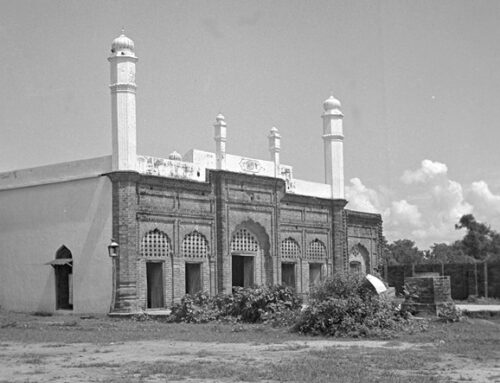
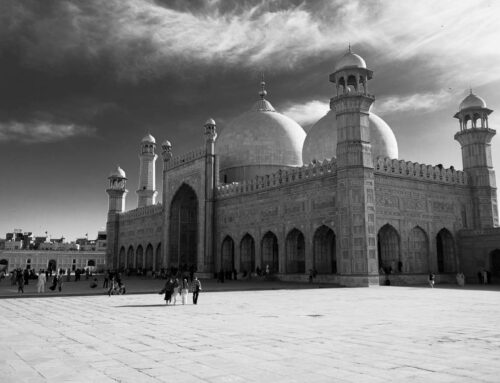
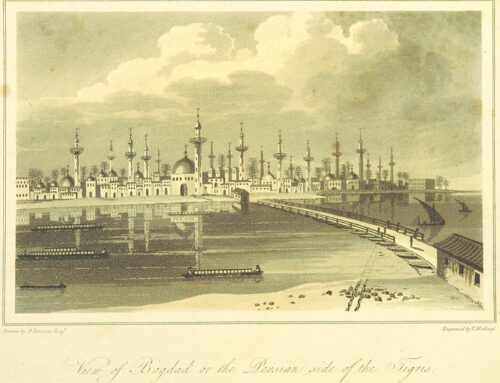
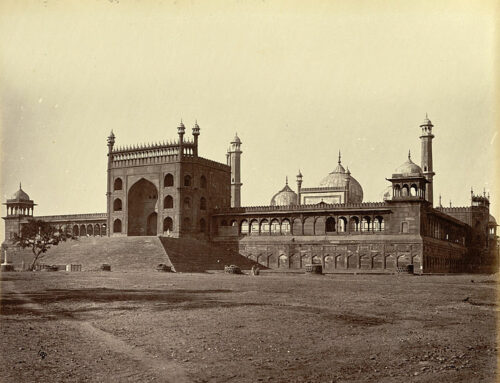
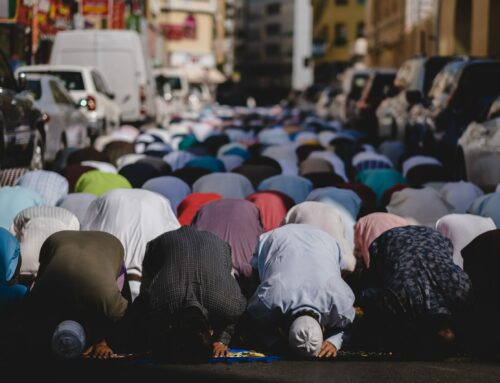
Super!